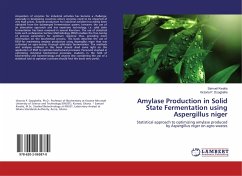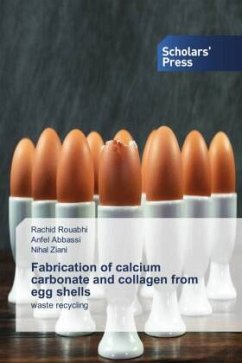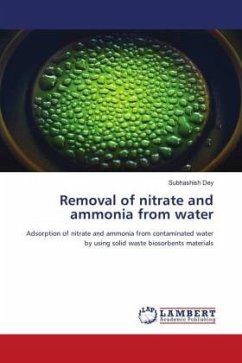
Removal of nitrate and ammonia from water
Adsorption of nitrate and ammonia from contaminated water by using solid waste biosorbents materials
Versandkostenfrei!
Versandfertig in 6-10 Tagen
29,99 €
inkl. MwSt.

PAYBACK Punkte
15 °P sammeln!
Presence of toxic metals in water is one of the biggest problems in the world wide. The heavy metals are come into the water from various sources. It is highly affected on the human and animal health. In all the metals nitrate and ammonia are highly affected on human health both are highly present in the ground water. The removing of these metals from water is one of the challenging tasks. There are lots of methods are available for removing the toxic metals from water. The solid waste bio-adsorbent is one of the cost effective and safe treatment methods for removal of nitrate and ammonia from...
Presence of toxic metals in water is one of the biggest problems in the world wide. The heavy metals are come into the water from various sources. It is highly affected on the human and animal health. In all the metals nitrate and ammonia are highly affected on human health both are highly present in the ground water. The removing of these metals from water is one of the challenging tasks. There are lots of methods are available for removing the toxic metals from water. The solid waste bio-adsorbent is one of the cost effective and safe treatment methods for removal of nitrate and ammonia from water. Biosorption is one of the simple methods which meet above objectives in addition to its other advantages like cheap adsorbents which can be reused, simple process with less wastage production and overall highly efficient. The present research work studies the feasibility of use of banana peel, orange peel, coconut wire, maize bark and tea waste as a biosorbent in removal of nitrate and ammonia from contaminated water. The removal efficiency 100% obtained from this work. The effects of different parameters like contact time, agitation speed, adsorbent dosage;



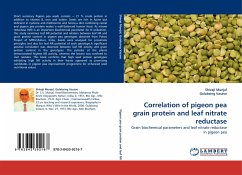
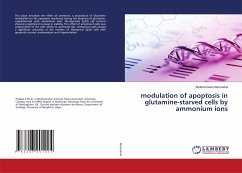
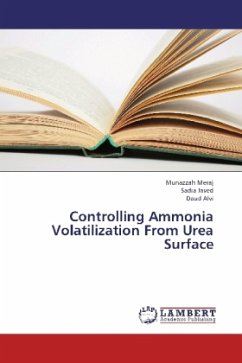
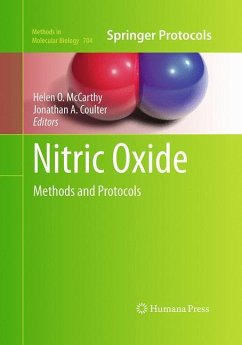
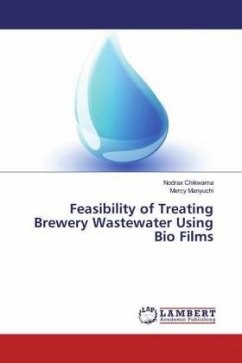
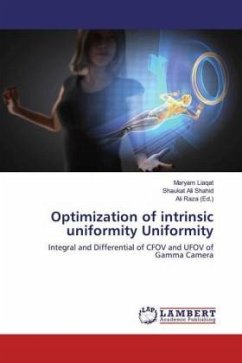
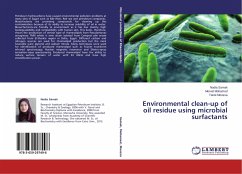
![Investigations on medicinal attributes of pyrazolo[3,4-d]pyrimidines Cover Investigations on medicinal attributes of pyrazolo[3,4-d]pyrimidines](https://bilder.buecher.de/produkte/45/45806/45806658n.jpg)
